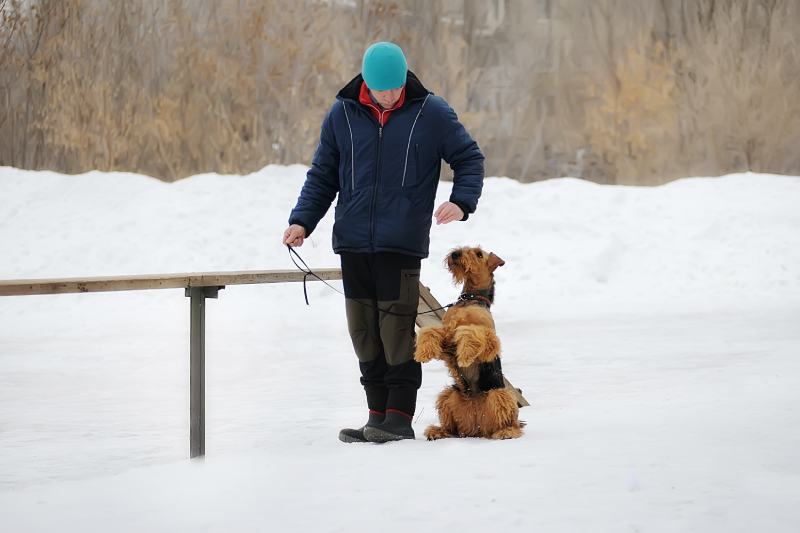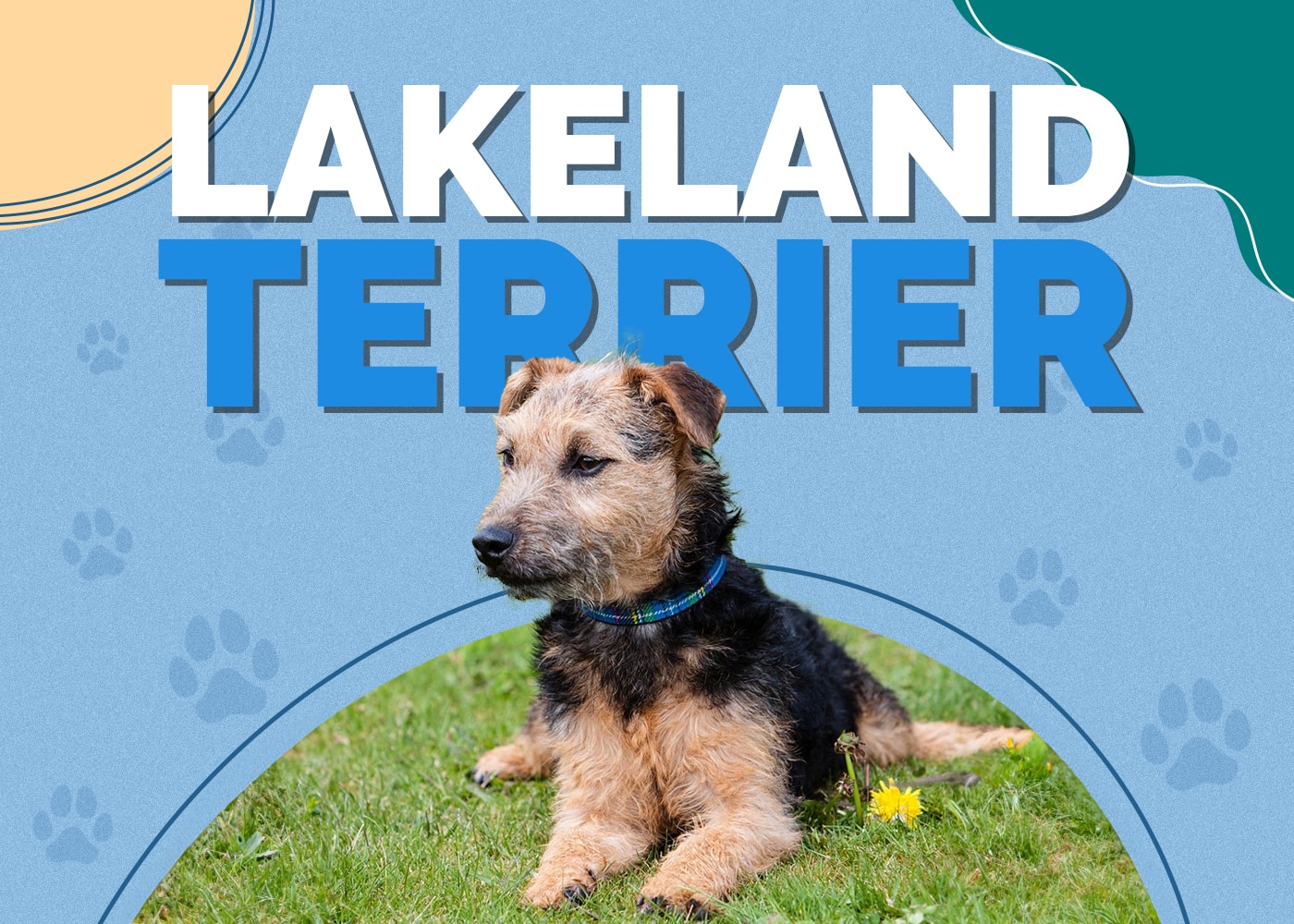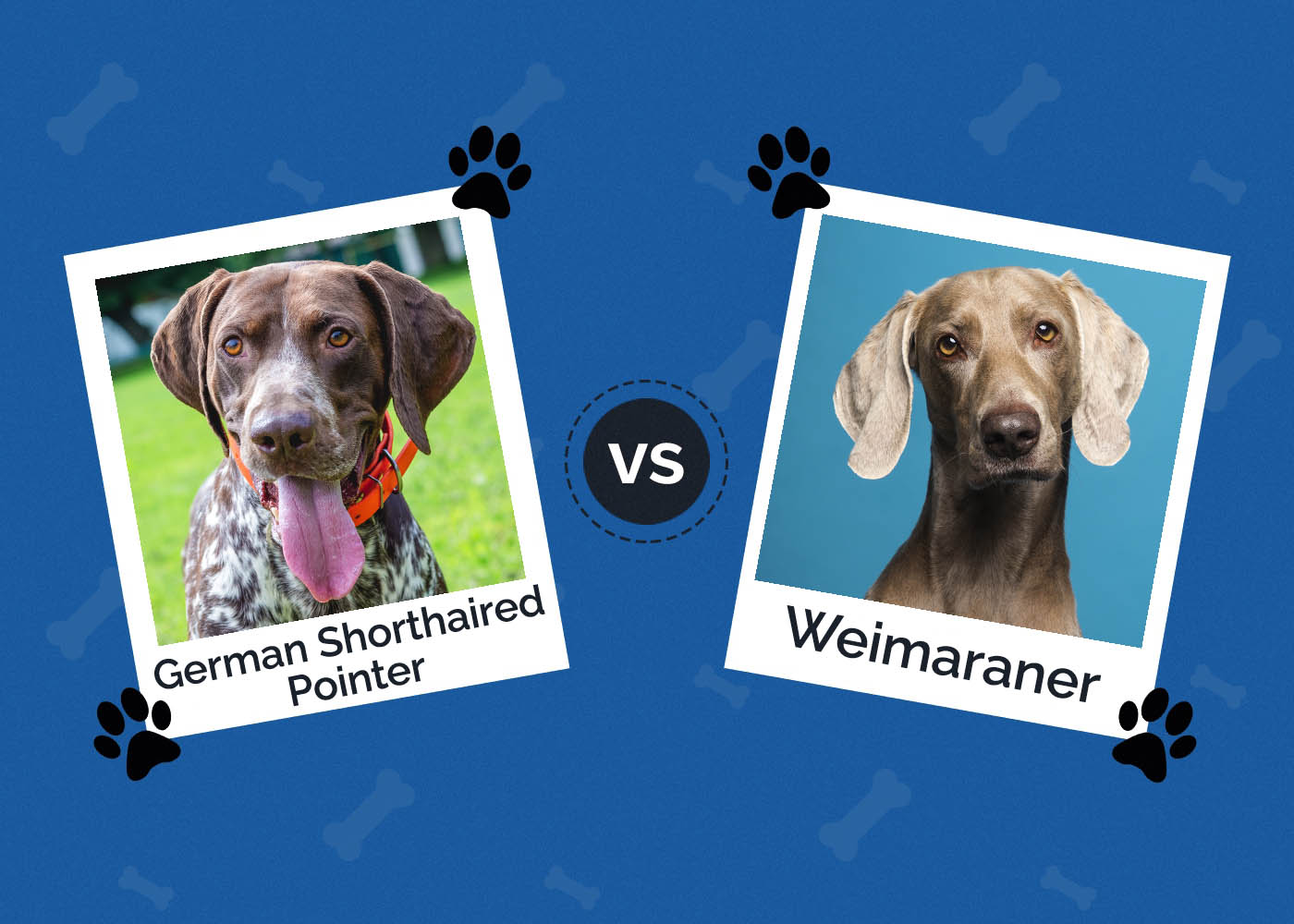Feist Dog: Info, Pictures, Characteristics & Facts
By Ashley Bates
Updated on
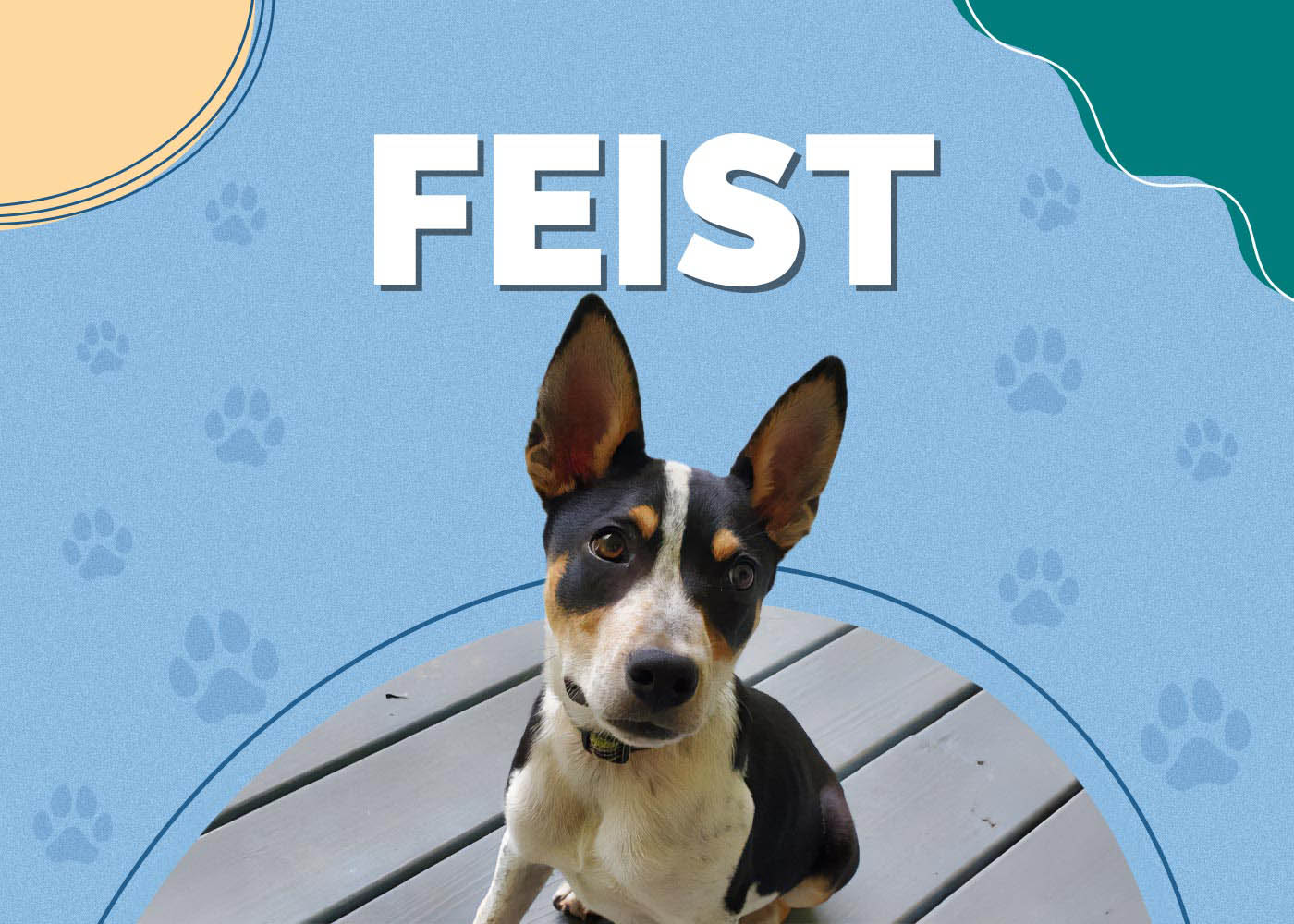
If you’re looking for an energetic, spunky pal to spend your days with, the Feist dog breed might just be the one for you. This dog is adventurous, intelligent, and extremely loyal to their caregivers. They certainly fit the bill for someone with a similar activity level—but they might not make the best match for others.
If the Feist dog catches your attention and you want to learn more about the overall breed, we are happy to explain all the details. By the end of this article, you should be able to decide if this breed is an option for you.
| Height: | 10–18 inches |
| Weight: | 15–30 pounds |
| Lifespan: | 15–18 years |
| Colors: | Black, white, gray, silver, blue, tan, red, brown, cream, sable, brindle, pied, Isabella, fawn |
| Suitable for: | Active individuals, those looking for a trainable working dog |
| Temperament: | Intelligent, on-the-go, friendly |
There are some interesting things about the Feist dog, indeed. This breed is a handsome, well-structured little dog with very few health issues and a great work ethic. Originally a hunting breed, this dog was skilled at all kinds of tasks. If you love a life of adventure, they will certainly enjoy a home with a person who shares their desire for wanderlust.
Feist Dog Characteristics
Feist Dog Puppies
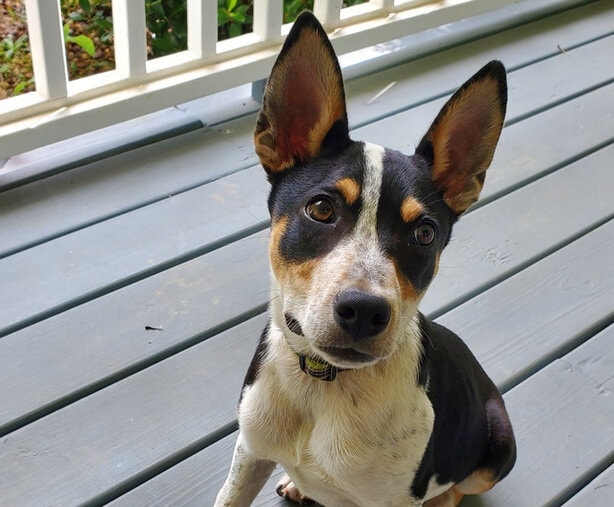
Feist puppies will certainly keep you on your toes. You can expect to be responsible for entertaining and creating an engaging space for them to explore. You will be impressed by the fight, instinctual behavior, and extreme desire to learn new things.
Interestingly, the Feist dog breed is not recognized by the AKC. However, it is recognized by several other kennel clubs across the United States and other areas. While you can find plenty of Feists that have been registered with a kennel club, they can be susceptible to backyard breeding.
Backyard breeding is where people breed dogs for profit without providing the animals with the correct vetting or environmental care they need. This creates a massive problem in the pet community, as it can lead to potential behavioral and health issues down the line. Plus, buying from these sorts of breeders only encourages their behavior.
If you’re interested in a Feist dog, we highly suggest looking for reputable breeders with a long history of successful litters. A breeder who is completely transparent and able to provide any answers to the questions that you have is purely essential. Many breeders require you to sign puppy contracts or put down a deposit. These measures are put into place to ensure the dog is receiving a wonderful home and will continue to be taken care of if you cannot do so in the future.
Before you bring home your puppy, it’s best to have a vet secured. That way, you can take them right in and get them acclimated with the proper follow-up vaccinations and parasite preventatives. In addition to that care, you also want to buy all the supplies necessary to take care of your Feist before their home arrival.
- Kennels/crates
- Leashes/harnesses
- Tags/collars
- Grooming products
- Puppy food
- Food/water bowls
- Bedding
- Toys
Remember that a puppy is a never-ending expense that needs to be factored in every month in addition to your regular bills.
Temperament & Intelligence of the Feist Dog
The Feist is a clever, quick dog willing to learn at every turn. They generally stay fully engaged in the activity they pursue. Because they have hunting roots, they are incredibly agile and efficient.
If you ask a Feist owner, they would likely tell you that their dog is very high-spirited, playful, and affectionate. They certainly have a lot of love to give their owners, and will gladly accompany you on any outing.
This dog is heavily instinctual, having a very keen sense of sight, hearing, and smell. They are always on high alert, and for this reason, they might bark frequently when they are stimulated. A Feist might not make the best guard dog, but they certainly make good watchdogs.
You will need a lot of free time when you have a Feist dog. This is certainly not the kind of dog you can lock in a kennel all day while you’re working. These dogs work best in homes where someone is always available.
They will require frequent walks, trips outside, and other forms of stimulation to keep them busy. If a Feist gets bored, it can easily lead to unwanted behaviors due to pent-up energy and loneliness.
Are These Dogs Good for Families? 👪
Feist dogs can be terrific additions to the right families. These dogs provide companionship, affection, and entertainment to their owners. They will also keep you motivated to exercise and get out of the house.
These dogs will be perfect if you are an individual, couple, or developed family with older kids. They can match the energy very well of roughly older kids, aged 6 and above. They will love romping around the house, chasing, jumping, playing, and trying out all sorts of silly acrobatics for you to watch.
However, if you have smaller kiddos that haven’t quite learned how to interact with other pets yet, this is probably not the best dog to have. The Feist does not have the patience necessary to tolerate toddlers and young children.
There might be a bit of a power struggle happening, and it might result in a poor pairing. Also, if you’re a person who is not very mobile or happens to be an older adult that is less active than you used to be, the Feist might be a little too energetic for you to handle.
They can be compatible with smaller living spaces like apartments or high rises, but you must ensure you keep up with their exercise demands. They are certainly not a couch potato and will prefer their days to be filled with movement.
Does This Breed Get Along With Other Pets?
Usually, if a Feist is raised around other dogs, they get along exceptionally well with them. In fact, your Feist will love having a playmate around that can match their energy levels. If your Feist has not been properly socialized, they might be a little bossy or unmannerly around other dogs.
This can all be corrected with some basic training. Because a Feist has a very high prey drive, they might always want to chase around the household cat. Even though they might not hurt them when they catch them, they can constantly disrupt their day, making them less compatible with smaller pets.
If you have existing cats or small farm animals outside, it’s best to introduce them as early as possible when you bring your Feist puppy home. The more they are around the critters at your residence, the more acclimated they will become. That doesn’t mean they won’t get frisky sometimes and want to play. That means they will be better acclimated and more desensitized to the animals.
A Feist should never be around smaller rodents or caged animals for any reason. The Feist’s energy is much too high, so even if they don’t intentionally hurt these animals, their intense prey drive and desire to chase can lead to injury and even death. So, if you have a hamster, rat, guinea pig, rabbit, or any other similar-sized animal, always ensure they are separated from your Feist.
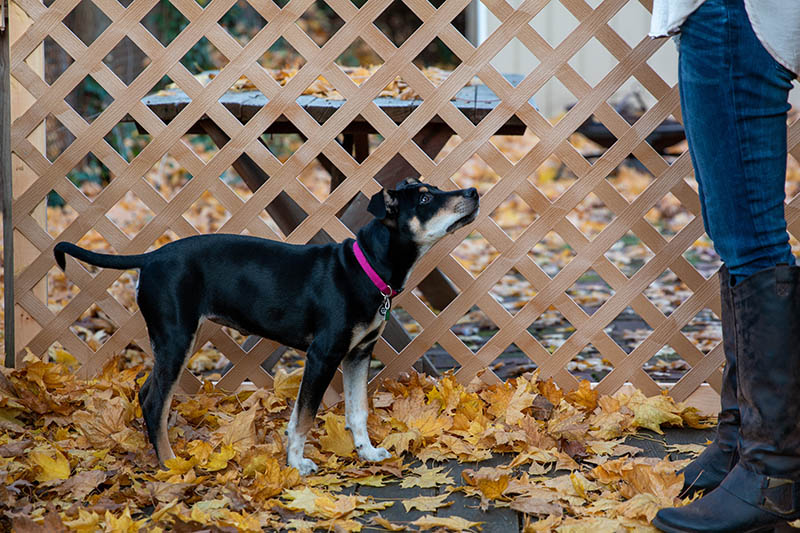
Things to Know When Owning a Feist Dog:
Food & Diet Requirements 🦴
Because a Feist is a very high-energy breed, their diet needs to reflect that. They require a very high-protein, good quality recipe that will meet their nutritional requirements. Because a Feist burns many calories in a day, they need a diet that will replenish them.
You and your vet will decide what works best for your dog as far as the specific type of dog food they should have. Generally, you can select between wet canned food, dry kibble, or fresh food.
We should mention that Feists are prone to allergies. That means they might have food allergies, making them sensitive to certain ingredients. Protein allergies are the most common type, but they can also react with many other additives in commercial diets.
If you suspect your Feist might have allergies, it’s best to get them into your vet to find out what they are allergic to and come up with an appropriate diet.
Exercise 🐕
We’ve tried to stress how important exercise is for a Feist. Because the Feist was developed to hunt, they require a substantial amount of activity in their day. Most generally, a Feist will be happy with between 1 to 1 1/2 hours of exercise per day.
Sometimes, daily walks aren’t enough. These dogs require more high-intensity workouts that can prove to be a little challenging for some people to accommodate. They work well in homes with large fenced-in backyards or lots of space to roam.
The Feist enjoys many adventurous activities like playing chase, running, scavenger hunting, swimming, digging, and eventually snoozing—essentially any activity where they can run and sniff!
If you live in a more suburban or urban setting, you can always look around for local dog parks. This dog will love to mingle and make new friends. Plus, they benefit from the social interaction. Keep in mind—a tuckered-out Feist is a happy Feist at the end of the day.
Training 🎾
Feists are very trainable if you use the right methods. Because they are smaller dogs with a high intelligence level, this can be a little difficult for inexperienced owners. If you find that your feisty Feist is having a bit of a behavioral issue, you can always elect the help of trained professionals.
Owning a Fiest can be challenging for a beginner, so don’t beat yourself up if you need outside assistance. With the proper training techniques, a Feist can become a very mannerly, well-rounded dog in no time.
You can locate professional trainers around your particular area. You can ask your vet for recommendations or seek reviews from paying customers. If you choose to do training at home, you can get tons of free resources online from professional trainers that can be very helpful.
Grooming ✂️
Feists have short, easy-to-manage coats. So, while they might be a little tricky with training, you should have no problem grooming them efficiently. You can expect to brush your Feist a few times a week to keep up with any excess shed or dander.
You won’t need fancy brushes to care for their coat. A standard bristle or slicker brush will do just fine. If you want to get a deep clean on the coat during heavier shedding periods, you can add a shedding tool to use occasionally.
Like all other dogs, these pups require a full body bath once every 4 to 6 weeks. You can take this time to ensure their nails are trimmed, teeth are brushed, and ears are squeaky clean.
Feists generally love water, so bath time should be easy to complete. We do want to point out again that Feists can suffer from food and environmental allergies. If they are sensitive to certain fragrances or chemicals and shampoos, it can cause skin irritation and other issues to arise.
To avoid that issue altogether, we recommend getting a natural, fragrance-free shampoo and conditioner to use.
Health and Conditions 🏥
Luckily, Feists are very healthy dogs. They don’t require an extensive amount of that care, as they rarely encounter any significant concerns. However, that is not to say that they will never have a health issue. There are still specific issues that can crop up in the breed.
The best way to combat any health issue is to partake in routine vetting. During your pup’s first year of life, they will see their vet quite frequently for all the basics, and it will taper off to one or two annual visits after that.
Here are some conditions you might see in the Feist. Remember that most of these are certainly avoided with proper genetic testing from both parents.
- Allergies
- Hip dysplasia
- Elbow dysplasia
Male vs Female
Male and female Feists are very similar in temperament. So, you should never base your decision on which sex you want based on that fact alone. However, males get slightly larger than females and tend to be a little stockier.
Certainly, there are small personality differences between Feists, but this is based on the individual dog and not the dog’s sex. Males and females share enough characteristics to where either would be completely suitable if you are interested in the breed itself.
3 Little-Known Facts About the Feist Dog
1. The Feist can have different tails
A Feist can have one of three different tail variations: natural, bobtail, or docked. Natural tails are long, curving slightly upward. Bobtails are short, stubby tails measuring a few inches long. Docked tails, like many other traditionally docked breeds, have the little tail stub at the end.
Generally, the breeder takes care of this part. Many of them choose to leave the Feist with its natural tail, while others decide to dock. The ultimate look is yours to choose from.
2. There are several kinds of Feists
There is no one-size-fits-all when it comes to a Feist. There are so many varieties!
- American Treeing Feist
- Barger Stock Feist
- Buckley Mountain Feist
- Charlie Feist
- Denmark feist
- Mountain Feist
- Mullens Feist
Each slightly differs from one another in breed appearance and purpose—but they are all pretty parallel, sharing most traits.
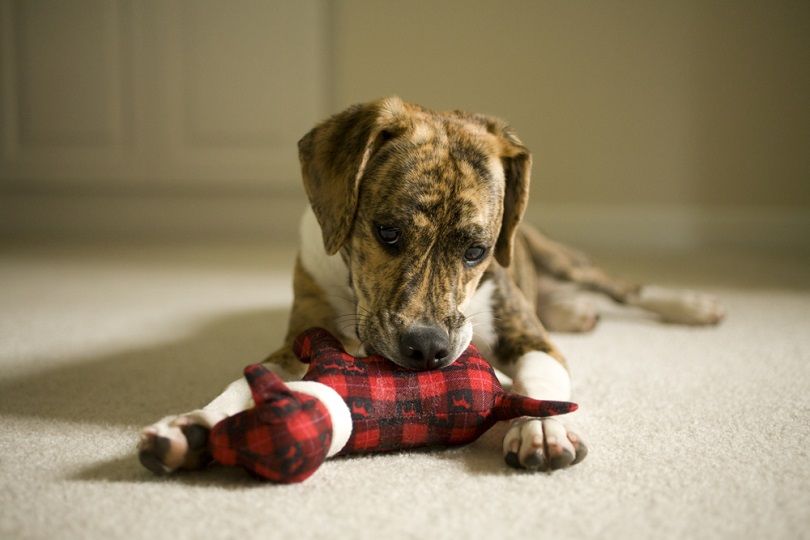
3. Feists are masters at treeing squirrels
You’ve never known of another dog to think “Squirrel!” more than a Feist. These dogs were literally designed to tree squirrels for hunters. So, if you notice that your little Feist just can’t seem to leave squirrels alone, understand that it’s in their blood.
Conclusion
So, what do you think? Does the Feist sound like a breed that would work in your household? Keep in mind that this dog does require an extensive amount of daily exercise. They might not be the best fit for little children or older adults.
However, their intelligence and livelihood really make spectacular matches for folks with active lifestyles. If they have the proper stimulation, they will make extraordinary companion animals. The Feist will make the best pal—accompanying you on hikes, jogs, outings, and adventures throughout their lifetime.
Featured Image Credit: Kyler Mitchell, Shutterstock




